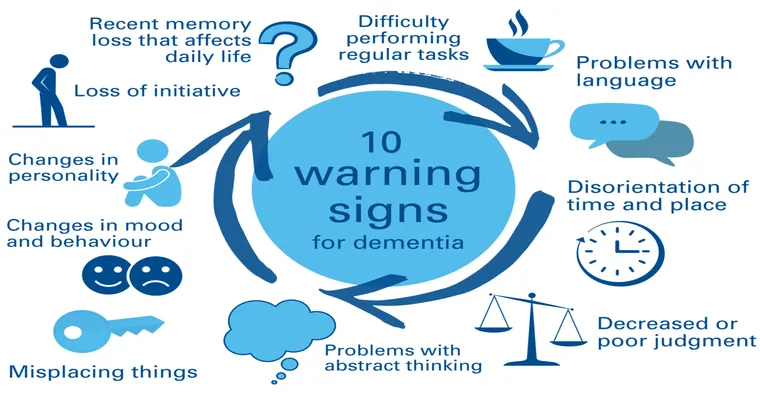Dementia is a complex group of symptoms that affect memory, thinking, and social abilities severely enough to interfere with daily life. Recognizing "dementia symptoms" early is crucial for effective management and support. The signs can vary from person to person but often include memory loss, difficulties with problem-solving, and changes in mood or behavior. If you or a loved one is experiencing these "dementia symptoms", seeking advice is essential to navigate the challenges ahead.
Common Symptoms of Dementia
Understanding the common "dementia symptoms" can help caregivers and families provide better support. Here are some key indicators:
1. "Memory Loss": One of the most recognizable signs, often manifesting as forgetting recent events or repeating questions.
2. "Difficulty in Communication": Struggling to find the right words or following conversations can indicate cognitive decline.
3. "Disorientation": Individuals may become confused about time, place, or even the identity of familiar people.
4. "Poor Judgment": A noticeable decline in decision-making abilities, leading to poor financial choices or neglecting personal hygiene.
5. "Changes in Mood and Personality": Increased anxiety, depression, or sudden mood swings can be a red flag for underlying issues.
When to Seek Help
If you notice any of these "dementia symptoms" in yourself or someone you care about, it is important to consult a healthcare professional. Early diagnosis can pave the way for effective treatment options and support systems. Health professionals may conduct cognitive tests or brain imaging to assess the condition accurately.
Tips for Caregivers and Families
Caring for someone with "dementia" can be both rewarding and challenging. Here are some tips to help you navigate this journey:
"Stay Informed": Educate yourself about dementia to understand what to expect and how to manage symptoms effectively.
"Create a Routine": Establishing a consistent daily routine can help reduce confusion and anxiety for individuals with dementia.
"Encourage Social Interaction": Maintaining social connections can improve the quality of life for those affected by dementia.
"Be Patient": Communication may become difficult, so patience and understanding are vital.
"Seek Support": Don’t hesitate to reach out to support groups or professional services for assistance.
Conclusion
Recognizing "dementia symptoms" early on can significantly impact the quality of life for both patients and caregivers. By being proactive and seeking advice, you can better manage the challenges associated with dementia. Whether through professional help, educational resources, or community support, taking the first step is essential in making a difference for those affected by this condition.





